Our first Greek Independence Day Parade in Boston was filled with an abundance of floats, festivities and great vibes. Every year Greek churches and organizations from across New England come together to parade through the heart of town, with traditional dancing, music and Greek food in Boston Common afterwards. There were Greek goddesses, traditional guards (evzones), an immense display of pride for Greece, the United States, and specific regions of both Greece and New England as well. Boston Mayor Marty Walsh was Grand Marshall of the Greek Independence Day Parade. While not Greek himself, Walsh is no stranger to cultural diversity, as both of his parents were born in Ireland.
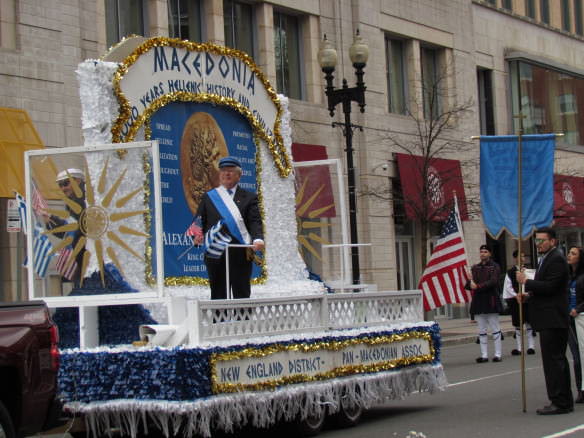

History of Greek Independence
The parade commemorates the day Greece officially gained its freedom from the Ottoman Empire, which occured March 25th, 1821. Boston’s 21st annual Greek Independence Day Parade fell late on the calendar this year because of the timelines of St. Patrick’s Day festivities, Catholic Easter, Greek Easter and then the Boston Marathon. Former President of the Hellenic Federation of New England, Jimmy Papaslis said that next year they’ll be able to hold the parade the first week of April, as they did in 2014. Apparently many Greeks questioned and complained about the parade taking place so late this year.
Boston Greek Independence Day Parade Floats
Virtually all floats in the parade displayed positive and patriotic messages, with some being uniquely Greek-New England, such as the “Boston Strong” float, with a parthenon on top. “Boston Strong” is a reference to the toughness of Bostonians following the terrorist attack at the 2013 Boston Marathon. And given how inundated with snow this city was this winter, you need to develop a thick skin to survive in what can also be a very abrasive town.
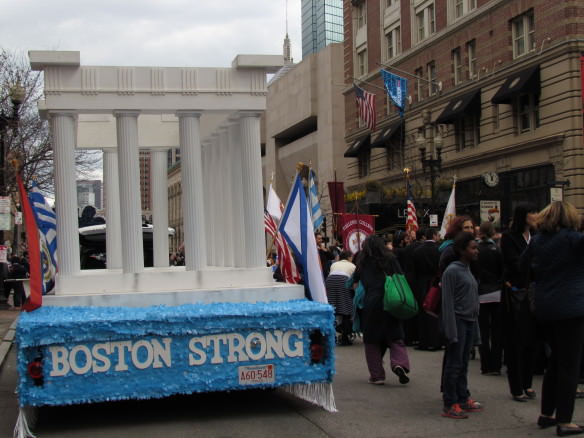
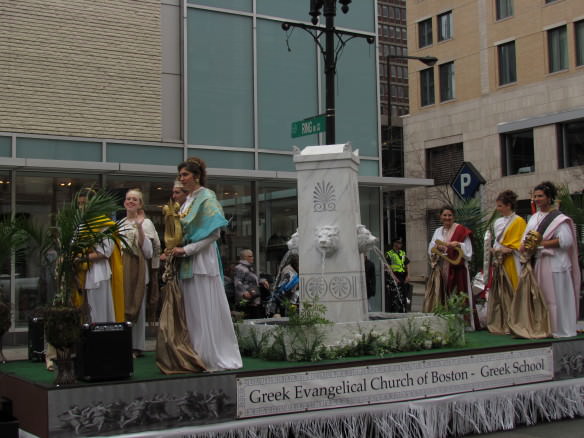
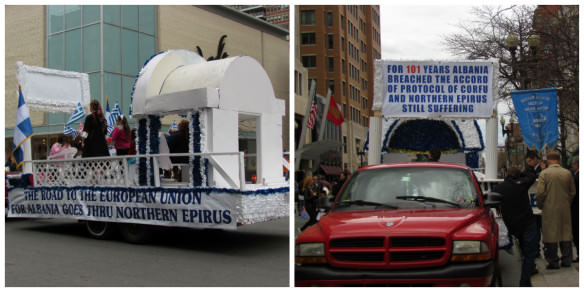
1988 Democratic Presidential Nominee Michael Dukakis Always Participates in the Boston Greek Independence Day Parade
As usual, Michael Dukakis also partook in the 2015 Greek Independence Day Parade. Dukakis, whose parents were both immigrants from Greece, is a former 3 term Governor of Massachusetts and was the Democratic nominee for president in 1988 (defeating Al Gore and current Vice President Joe Biden among others). At one point in the 1988 campaign, he held a 17% lead in national polls over eventual winner George H.W. Bush, who ultimately ran a savvier (and dirtier) campaign that led to Dukakis only winning 10 of 50 states. Still, Dukakis was admired by millions of blue collar workers, as he carried, among others, the predominantly coal mining state of West Virginia, a state that even President Barack Obama lost in both presidential elections.
Dukakis also won his home state of Massachusetts, an achievement that would have won the presidency for Al Gore over George W. Bush in 2000 had Gore carried his home state of Tennessee. And Mitt Romney, who is also a former governor of Massachusetts, did not carry the state in the 2012 presidential election. Dukakis was a champion of public transportation as Massachussetts governor, who led by example, and despite his own objections, the Massachusetts state legislature voted last year to officially name Boston’s main train station, ‘South Station’, the ‘Michael T. Dukakis South Station Transportation Center.’ Now 81, Dukakis is a political science professor at Boston’s Northeastern University and UCLA and has been Grand Marshall of Boston’s Greek Independence Day parade many times.
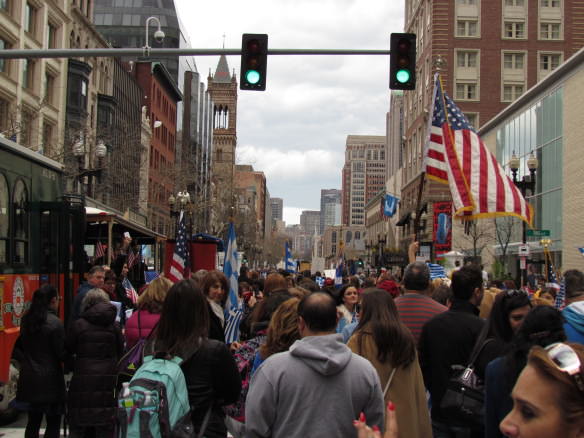
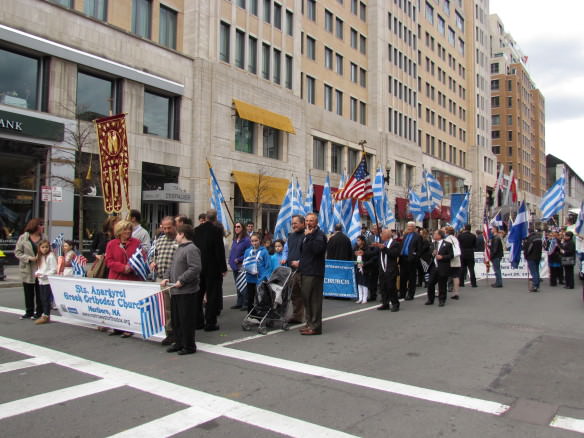
Boston Common Festivities
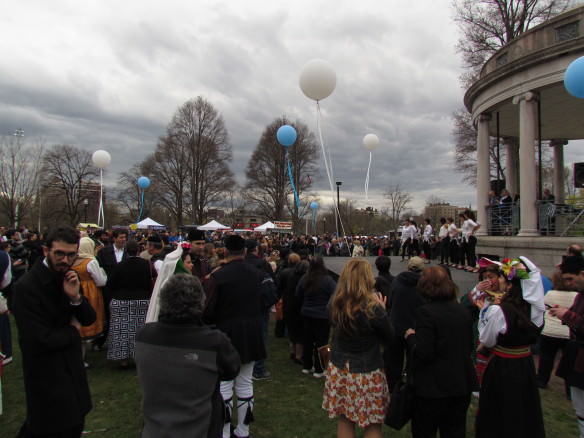
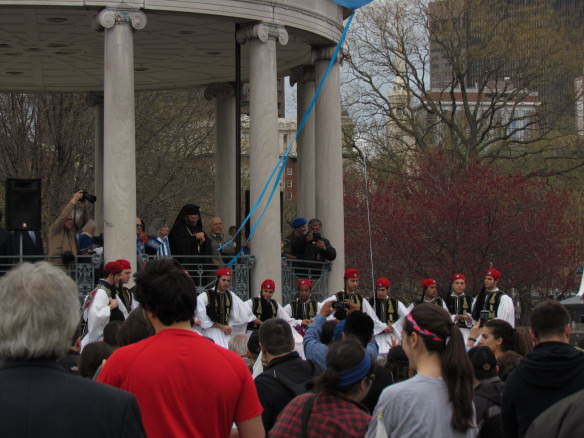
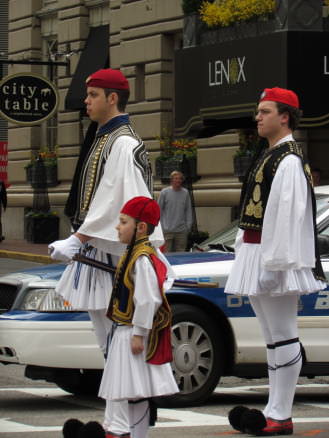
During Italian American celebrations in Boston’s North End, there’s a lot more Italian food options for sale, making it a more happening place for outsiders as well (granted the Italian businesses already dominate the North End). We thought the parade was generally wonderful, but for the festivities following the Greek Independence Day Parade, we’d love to see more Greek food for sale. It’s great business and a highlight of Greek culture.

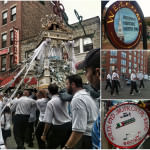
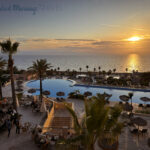

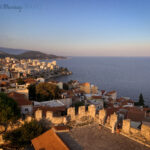

 Pros and Cons of Guided Tours: Maximizing Your Travels
Pros and Cons of Guided Tours: Maximizing Your Travels 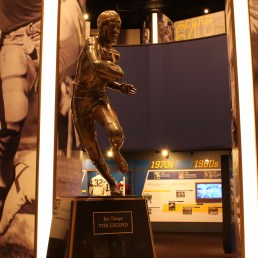 Pros and Cons of the Pro Football Hall of Fame
Pros and Cons of the Pro Football Hall of Fame